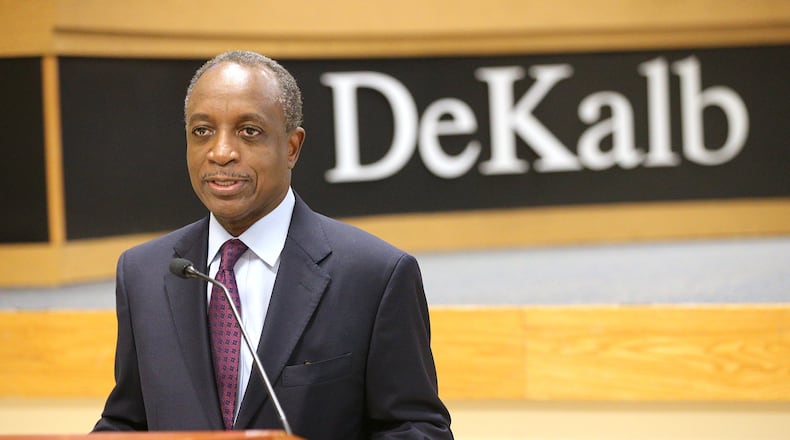DeKalb County is charging property owners more for basic government services, contributing to increased millage rates in many cities that may lead homeowners to pay more in property taxes.
These higher county millage rates aren’t the only things affecting tax bills this year. Some DeKalb cities like Clarkston and Doraville are also planning to increase their local tax rates. And rising property values mean people will pay more even if the millage where they live is unchanged.
VIDEO: More DeKalb news
Offsetting these increases are various homestead exemptions, property assessment freezes and implementation of a new EHOST sales tax that will be used to provide property tax relief. To what degree will vary home by home and will become more apparent as tax bills are mailed out in August.
DeKalb CEO Michael Thurmond said the county decided to increase its general fund tax rate from 8.693 mills to 9.638 because the cost of doing business has increased.
“We gave everybody a 3-percent raise last year; health costs are greater,” he said. “We’re doing more in terms of maintenance, cutting grass and removing blight. All of those things have a cost associated.”
The millage rate is the amount per $1,000 of property value that is used to calculate local taxes. In DeKalb County, homeowners in most incorporated areas pay three different millages to the county, city and local school district. For property owners in Avondale Estates, for example, the 2018 millage is expected to be 9.957 in city taxes, 13.547 in county taxes and 23.18 in school taxes for a total millage of 46.684.
Residents in unincorporated DeKalb, Stonecrest and Tucker do not pay any city taxes and their county rate is the same as last year, 20.810 mills. That isn’t true for the other cities.
The county millage rate is comprised of 10 different funds, and cities pay different amounts within the various categories or nothing at all depending on the services they receive from the county. Although some of the millage in those funds are down this year, the general fund that all cities pay into had a sizeable decrease and will cause most cities to pay a higher county millage.
On average, DeKalb municipalities may see their county property taxes increase by .4 mills. or 40 cents for every $1,000 of taxable value.
Some DeKalb cities have also proposed increasing local revenue by raising their own millage rates. Clarkston had the biggest jump from 15.89 mills to 17.5. The biggest decrease is in Lithonia, where city officials approved a rollback rate of 11.116, down from 14.074. It is the fourth year the city has reduced its property tax rate.
Most municipalities and the county are in the process of finalizing millage rates.
Lithonia Mayor Deborah A. Jackson said city officials have decided to rely on increased property values to keep revenue consistent while reducing the millage each year. Part of the reasoning is the city’s aging population and concerns that allowing tax bills to rise could price some seniors out of their homes.
“We wanted to minimize any impact on them,” Jackson said.
Tucker and Stonecrest, the county's newest cities, continue to operate without charging a local tax. That could change as they decide which new services to take on from the county, such as roads and drainage or creating a police force. In the past, Stonecrest has debated a 1 mill city tax. It hasn't happened yet.
“I want to keep our taxes low, but sometimes you can’t have your cake and eat it too,” Stonecrest Councilwoman Diane Daniels Adoma said.
In addition to city and county tax rates, the third and largest component of millage rates is school taxes. DeKalb residents help support the county, Atlanta or Decatur school districts depending on the address. Atlanta and DeKalb schools dropped their millage rates slightly this year while Decatur stayed the same.
Although county millage rates are decreasing in many cities and property values are rising almost across the board, Thurmond said the EHOST will provide a level of relief that allows DeKalb to stand out.
“We have resources at a level that the great majority of counties do not have,” he said. “And the most effective one and the most significant one is the EHOST.”
The county has published a list of the average savings residents of various cities could experience through EHOST. It ranges from $147 for the owner of a $200,000 home in unincorporated DeKalb to $590 in Stone Mountain.
About the Author
Keep Reading
The Latest
Featured



